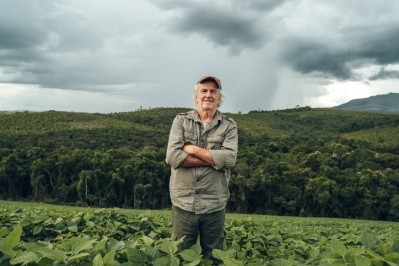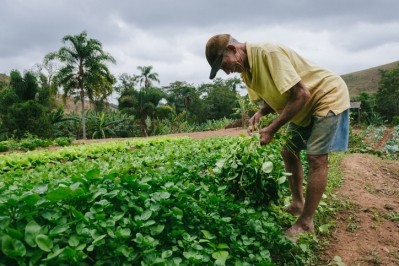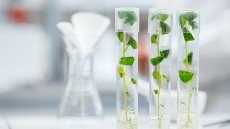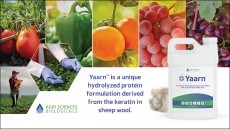Fresh calls to clear up confusion between 'organic' and 'regenerative' farming
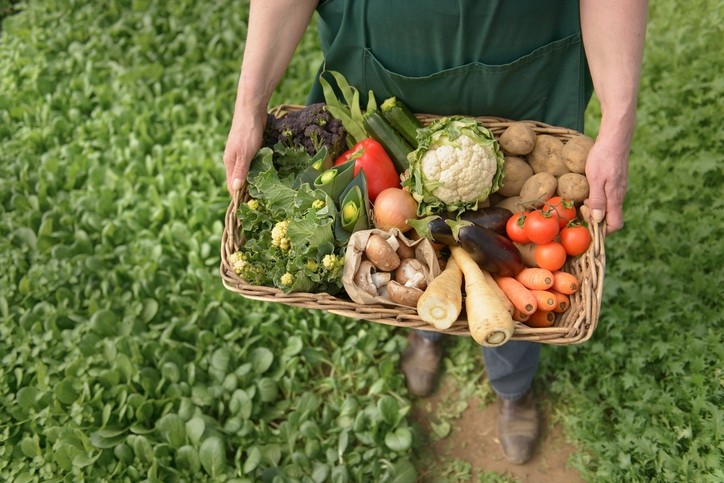
Making the benefits of different types of farming basic for the public could boost uptake of organic farming in the UK and give better protection for the countryside, according to a new study led by a team at the University of Reading.
This includes clearing up the misunderstanding between 'organic' and 'regenerative' farming. This is something that has troubled farm owner and TV presenter Jeremy Clarkson on his popular Amazon Prime show Clarkson’s Farm. Reports also regularly highlight that the general public confuse regen ag with organic.
This often troubles proponents of each. Those who push regen ag as the leading model for sustainable agriculture fear the lack of differentiation with organic will mean shoppers will equate it with a price premium, and therefore be a potential barrier for growth.
Another fear is that because organic farming eliminates the use of chemical fertilisers (compared to regen ag’s prescription of moderating their use) sustainable farming techniques will prove incapable of producing enough at scale to feed a growing global population.
Organic supporters, meanwhile, object to the fact that regen ag does not completely prohibit the use of synthetic fertilisers in all cases. Regen ag is not a specific practice, but rather a philosophy that uses a variety of techniques in combination.
But those staunchly in the organic camp often fear the practice is simply an ‘as you were’ approach that pays lip service to using less fertilisers and spaying, and is therefore open to greenwash from big companies and supermarkets.
Regenerative vs organic farming: what’s the difference?
Organic avoids synthetic inputs and follows specific certification standards. Regenerative takes a more holistic approach, aiming to actively restore and enhance entire ecosystems via a variety of techniques.
Soil health
Organic: Avoids synthetic fertilisers and pesticides but may still use tillage that disrupts soil structure.
Regenerative uses techniques like no-till farming, cover cropping, and crop rotation to protect and improve soil.
Regenerative agriculture puts more emphasis on carbon sequestration through practices that capture and store carbon in the soil.
Certification and Standards
Organic: Has strict, legally binding certification standards.
Regenerative: Lacks a universal legal definition, allowing for more flexibility but also potential misuse.
Animal Welfare
Organic: Has specific standards for animal welfare, including access to outdoors and limits on antibiotics.
Regenerative: Often emphasises integrating animals into farming systems in ways that mimic natural ecosystems.
Lack of knowledge ‘preventing an organic revolution’
The concept of regenerative farming is gaining support with many farmers, scientists and retailers, according to the study, which is published in Nature Communications Earth and Environment.
But confusion between 'organic' and 'regenerative' farming is hindering the uptake of organic farming in the UK, it says.
According to the study, farmers are less concerned about the cost of growing organic veg or a lack of subsidies from the government – instead, it is the lack of long-term thinking from shoppers, landowners and policymakers about the benefits of sustainable farming that is preventing an ‘organic revolution’.
It concludes that initiatives aimed at changing public perception and understanding of farming's role in society could be effective in driving the transition to organic methods.
Dr Tom Staton, who led the research, stressed that organic is a legally protected term, giving consumers confidence in the products they buy.
"There's a lot of buzz around regenerative farming, but it's crucial to understand that 'organic' is a legally protected term,” he said.
“This means consumers can trust that organic produce meets specific standards, particularly regarding pesticide and manufactured fertiliser use.”
‘We’re not knocking regenerative agriculture’
But the researchers also emphasised there’s room for both methods.
For example, Waitrose & Partners, which in May launched a major new plan to adopt regenerative farming schemes for its whole food range, with the support of University of Reading experts.
“I agree that regenerative farming is a philosophy rather than a specific practice, and part of its appeal to farmers is that it is not regulated or standardised, hence it is very adaptable,” Staton told AgTechNavigator.
“I would argue that there absolutely is a place for both regenerative and organic in a sustainable future, but there is an educational need for consumers to understand the difference.”


